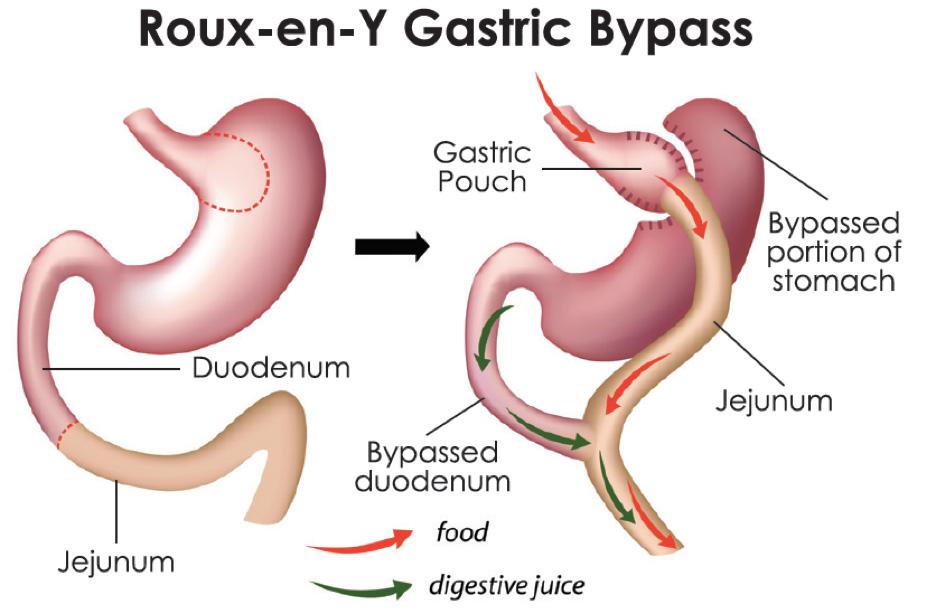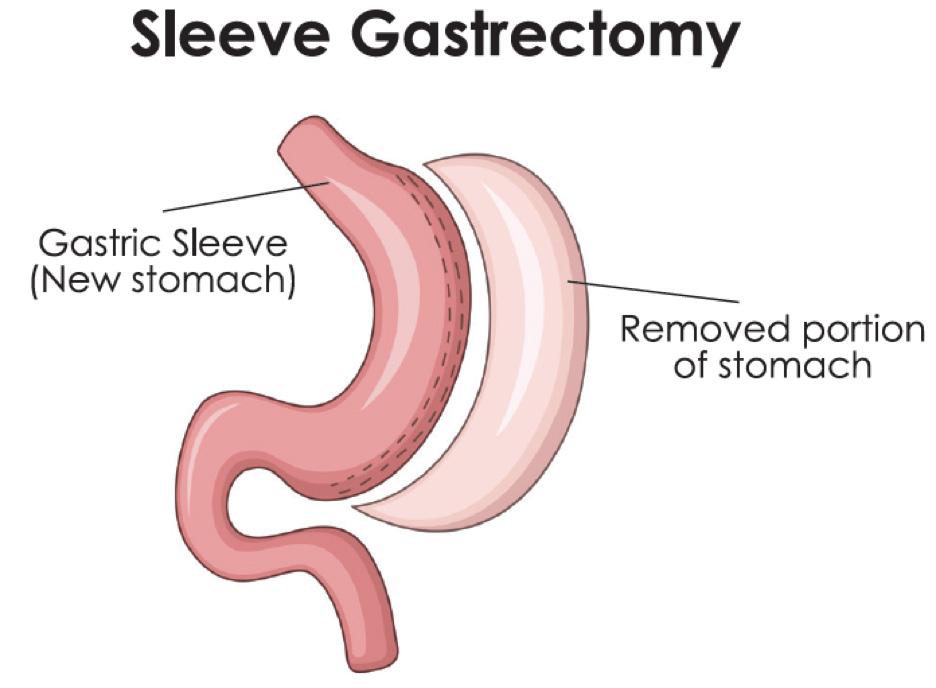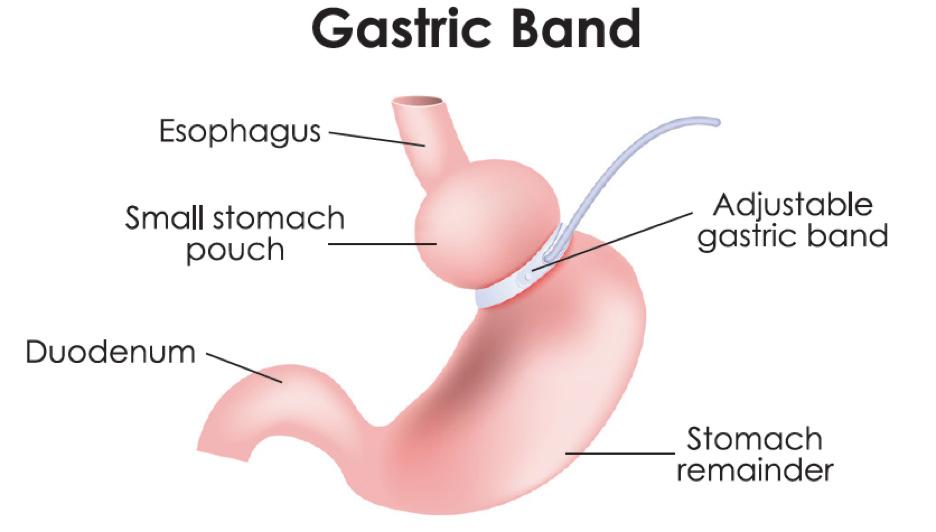What is Bariatric Surgery? Benefits, Types of Bariatric Surgery and the Best Bariatric Surgery Hospitals
Bariatric surgery, also referred to as weight loss surgery may be the best treatment option for severe obesity if conventional methods of weight loss, such as diet and exercise, have failed. It may also be the best option if an individual has an obesity-related disease. In general however, it is encouraged that the first step to weight loss include changes in diet, increased physical activity and behavioral modifications.
What is Bariatric Surgery?
If you have severe obesity and have not been able to lose enough weight through other methods, then bariatric surgery, also referred to as weight-loss surgery, may be an option. Bariatric surgery can improve many health problems and diseases related to obesity. In short, bariatric surgery refers to a variety of surgical procedures to help individuals lose weight by making changes to the digestive system.
Principles of Bariatric Surgery
The basic principle of bariatric surgery is to restrict food intake and decrease the absorption of food in the stomach and intestines. Some weight-loss surgeries will limit the amount you can eat and drink at one time, by making the stomach smaller. This also helps you feel fuller sooner. Alternatively, or in addition to limiting food intake, there are operations that change the small intestine, which is a part of the digestive system that absorbs nutrients and energy from the foods and beverages you consume. These operations limit the number of calories that the body can absorb. Additionally, weight-loss surgeries can reduce your appetite and hunger by affecting your gut hormones or the bacteria in the gastrointestinal tract. This can help improve the way in which your body metabolizes fat and makes use of insulin.
Benefits of Bariatric Surgery
Evidence suggests that bariatric surgery, when coupled with healthy lifestyle changes after surgery, may lower death rates for patients with severe obesity, extending years of life, as well as improving mood and quality of life.
Long Term Weight Loss: When combined with a comprehensive treatment plan, weight loss surgery is often times the only effective tool to provide an individual struggling with obesity, a long term weight-loss solution. In fact, according to the American Society for Metabolic and Bariatric Surgery (ASMBS), “Around 90% of patients after bariatric surgery lose 50% of excess body weight and keep this extra weight off long-term.”
Improved Medical Conditions: Bariatric surgery has been shown to resolve a number of conditions, such as high blood pressure, high cholesterol, type 2 diabetes, heart disease, asthma, sleep apnea, respiratory conditions, GERD, degenerative joint disease, etc.
Improved Lifespan: Various studies have shown that those individuals with severe obesity, who have undergone bariatric surgery, have a significantly lower risk of death than those who did not undergo surgery. According to the ASMBS, “Surgery for weight loss lowers the risk of death related to many diseases including heart disease (40% lower), diabetes (92% lower), and cancer (60% lower).
Quality of Life: Weight loss surgery significantly improves the overall quality of life. From issues such as unemployment and disability, to depression, low self-esteem, obstructive sleep apnea and difficulty with mobility, weight loss surgery can bring about many improvements to one’s life and psychological well-being. Many patients report being enthusiastic about life, and doing things they haven’t been able to do for a long time.
Types of Bariatric Surgery
Gastric Bypass
The Roux-en-Y Gastric Bypass (RYGB), referred to as simply ‘Gastric Bypass’ is considered the most common bariatric procedure in the U.S. It works by restricting food intake and rerouting how food is absorbed. A small stomach pouch is created by separating it from the rest of the stomach. This new, small stomach pouch, allows you to feel fuller and more satisfied with much less food consumption. Additionally, the new stomach pouch is connected to a lower portion of the small intestine, bypassing the first part of the small intestine (the duodenum), which would normally have absorbed some of the calories from food. And, most importantly, the rerouting of the digestive system causes changes to the gut hormone, which then suppresses hunger and promotes satiety (reduced appetite).

Sleeve Gastrectomy
The sleeve gastrectomy procedure limits the amount of food that can be consumed by drastically reducing the size of the stomach, and thereby reducing the number of calories consumed. The procedure removes approximately 80 percent of the stomach, and the remaining portion of the stomach resembles the size of a banana. Most importantly is the effect this surgical procedure has on the gut hormones, which impacts hunger, satiety, and blood sugar control. Sometimes this procedure is the first step before other surgical procedures are performed, like gastric bypass or BPD-DS.

Adjustable Gastric Banding (AGB)
The adjustable gastric band (also referred to as ‘the band’) limits the amount of food intake, by placing a small inflatable band around the top portion of the stomach. This creates a smaller stomach pouch that allows you to feel fuller and satisfied with less food consumption. This band can be adjusted gradually over time through a port that is placed just under the skin. This procedure involves no cutting of the stomach or rerouting of the digestive system. The procedure is not only adjustable but can also be reversed.

Biliopancreatic Diversion with Duodenal Switch (BPD-DS)
The BPD-DS procedure limits the amount of food intake while also reducing the number of calories that are absorbed through the small intestine. This procedure also affects the gut hormones, impacting hunger, satiety, and blood sugar control. There are 2 parts to this procedure. First, the stomach is reduced in size in a fashion similar to the sleeve gastrectomy. Then, the stomach attaches to the lower part of the small intestine, bypassing about three-fourths of the small intestine. Because the food now mixes with the digestive enzymes much further down in the small intestine, there is a significant decrease in the amount of calories and nutrients that are absorbed. However, in time patients are able to eat almost normal amounts of food, but due to the bypassing of a large portion of the small intestines, much of the calories and nutrients will not be absorbed, including the reduction of fat absorption by about 70%.
Best Hospitals for Bariatric Surgery in the US
Undergoing any surgical procedure is a serious decision and it’s critical to understand what the procedures involve, the health benefits and risks associated with the procedures, and what is required before, during and after treatment to maintain a healthy lifestyle. Be sure to eliminate as much risk as possible by starting your search with the hospitals that have earned the Women’s Choice Award, which indicates that they meet high industry standards, were assessed for their patient safety rating, and have above average patient recommendation ratings. (The full methodology can be found here.)
Below are featured hospitals that have earned the Women’s Choice Award while also taking steps to support the empowerment of women.
View the full list of about 200 hospitals that earned the Best Hospitals for Bariatrics list, and to search by city. Or visit https://www.womenschoiceaward.com/best-bariatric-surgery/.

CARTERET HEALTHCARE
Morehead City, NC

CATAWBA VALLEY MEDICAL CENTER
Hickory, NC

MONONGAHELA VALLEY HOSPITAL
Monongahela, PA

MORRISTOWN MEDICAL CENTER
Morristown, NJ
Sources:
National Institutes of Health
https://www.niddk.nih.gov/health-information/weight-management/bariatric-surgery/
American Society for Metabolic and Bariatric Surgery
https://asmbs.org/patients/benefits-of-weight-loss-surgery
https://asmbs.org/patients/bariatric-surgery-procedures
